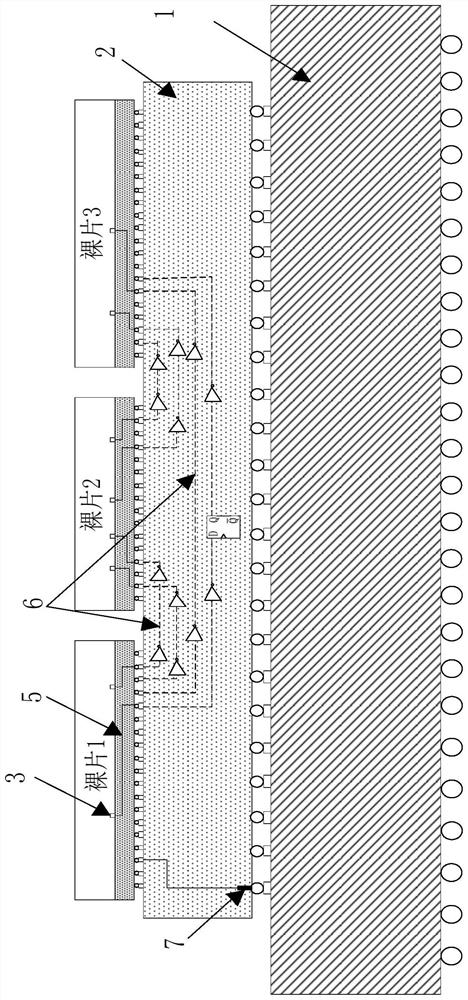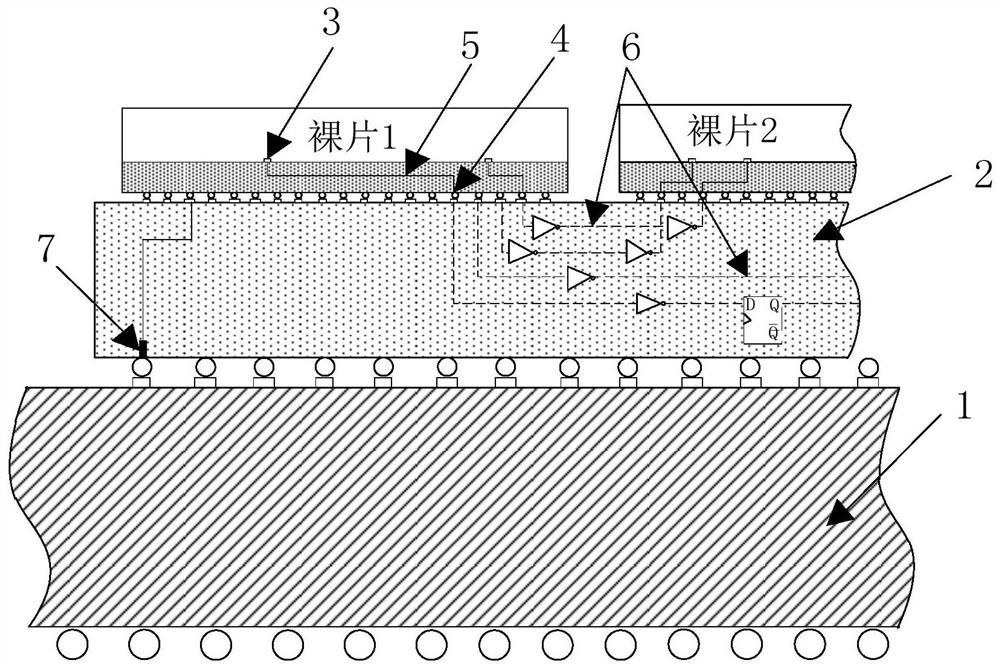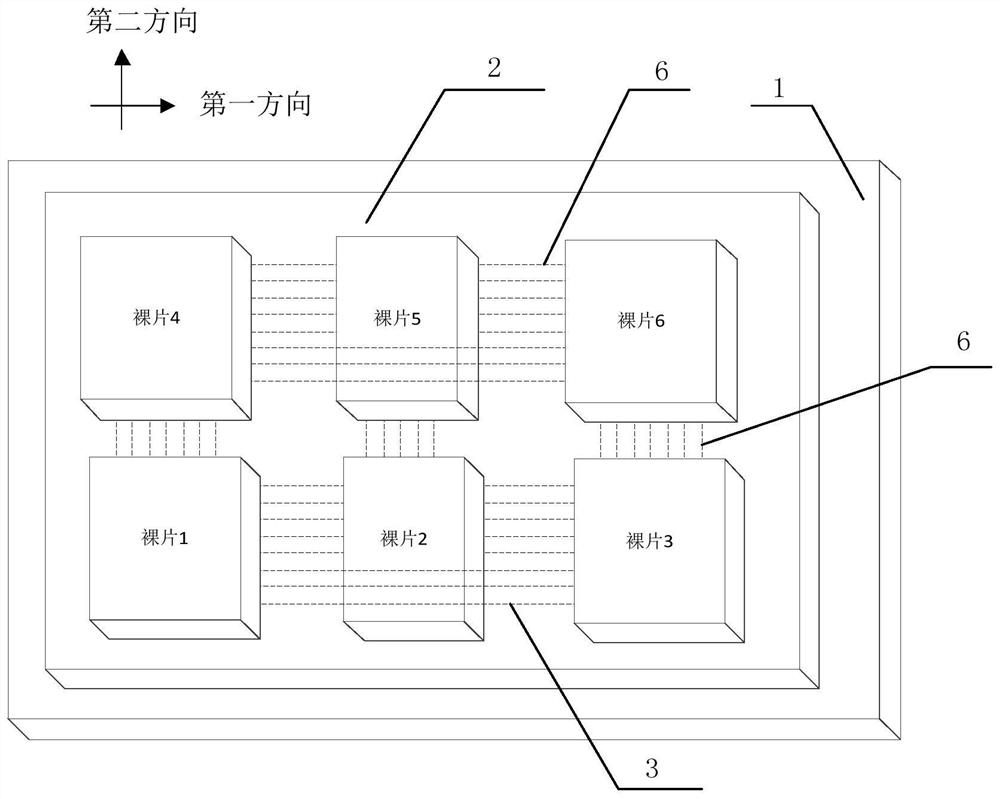Multi-die FPGAs with balanced latency using active silicon connection layers
A technology that balances delays and connection layers. It is applied in CAD circuit design and special data processing applications. It can solve the problems of difficult design and adjustment of device signal delay, large structural limitations, and difficulty in meeting the complex circuit requirements of large-scale integrated circuits. , to achieve the effects of reducing noise interference, reducing processing difficulty, and increasing Schmidt trigger characteristics
- Summary
- Abstract
- Description
- Claims
- Application Information
AI Technical Summary
Problems solved by technology
Method used
Image
Examples
Embodiment Construction
[0049] The specific embodiments of the present invention will be further described below in conjunction with the accompanying drawings.
[0050] This application provides a multi-die FPGA that utilizes an active silicon connection layer to balance delays, figure 1 It is a schematic cross-sectional view of the packaging structure of the FPGA of the present application, figure 2 yes figure 1 Enlarged view of part of the structure, image 3 yes figure 1 The corresponding top view diagram. The FPGA includes a substrate 1, a silicon connection layer 2, and several FPGA dies that are stacked sequentially from bottom to top, such as in Figure 1-3 The structure shown contains 6 FPGA dice, denoted as dice 1-6 respectively. In actual implementation, the FPGA also includes a packaging shell packaged outside the substrate 1, the silicon connection layer 2 and the FPGA die to protect each component, and also includes pins for signal extraction connected to the substrate, etc. figur...
PUM
 Login to View More
Login to View More Abstract
Description
Claims
Application Information
 Login to View More
Login to View More - R&D
- Intellectual Property
- Life Sciences
- Materials
- Tech Scout
- Unparalleled Data Quality
- Higher Quality Content
- 60% Fewer Hallucinations
Browse by: Latest US Patents, China's latest patents, Technical Efficacy Thesaurus, Application Domain, Technology Topic, Popular Technical Reports.
© 2025 PatSnap. All rights reserved.Legal|Privacy policy|Modern Slavery Act Transparency Statement|Sitemap|About US| Contact US: help@patsnap.com



